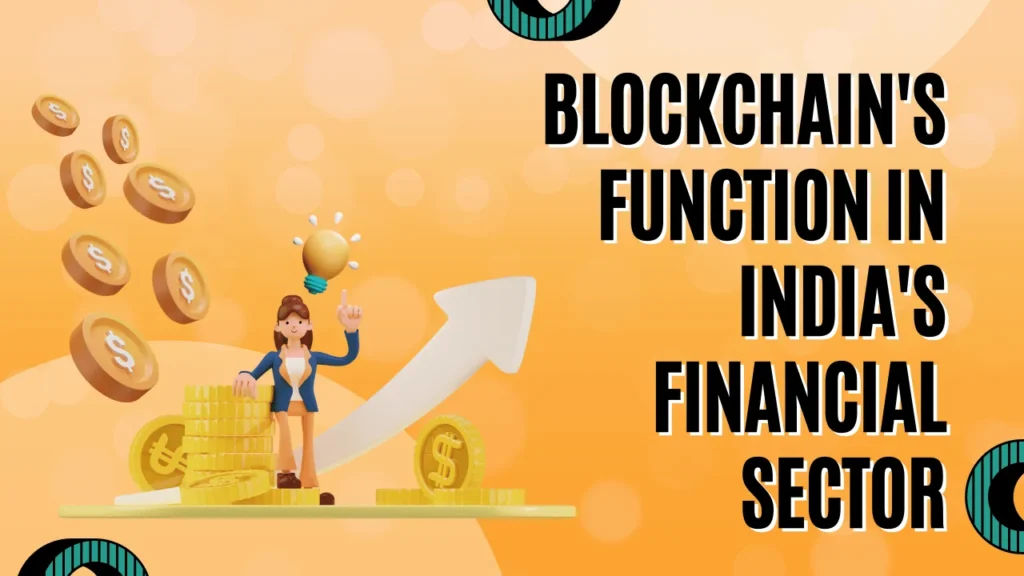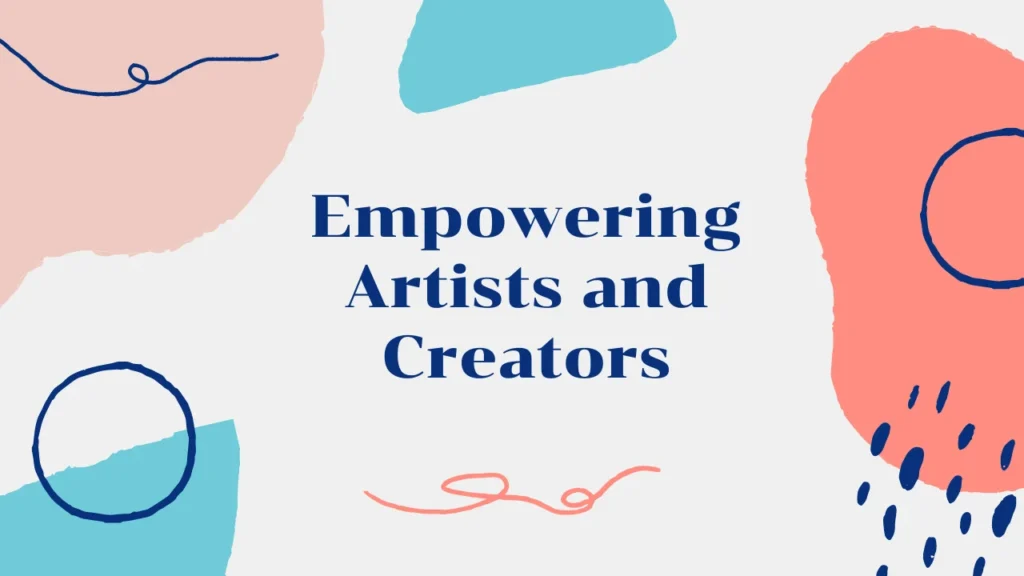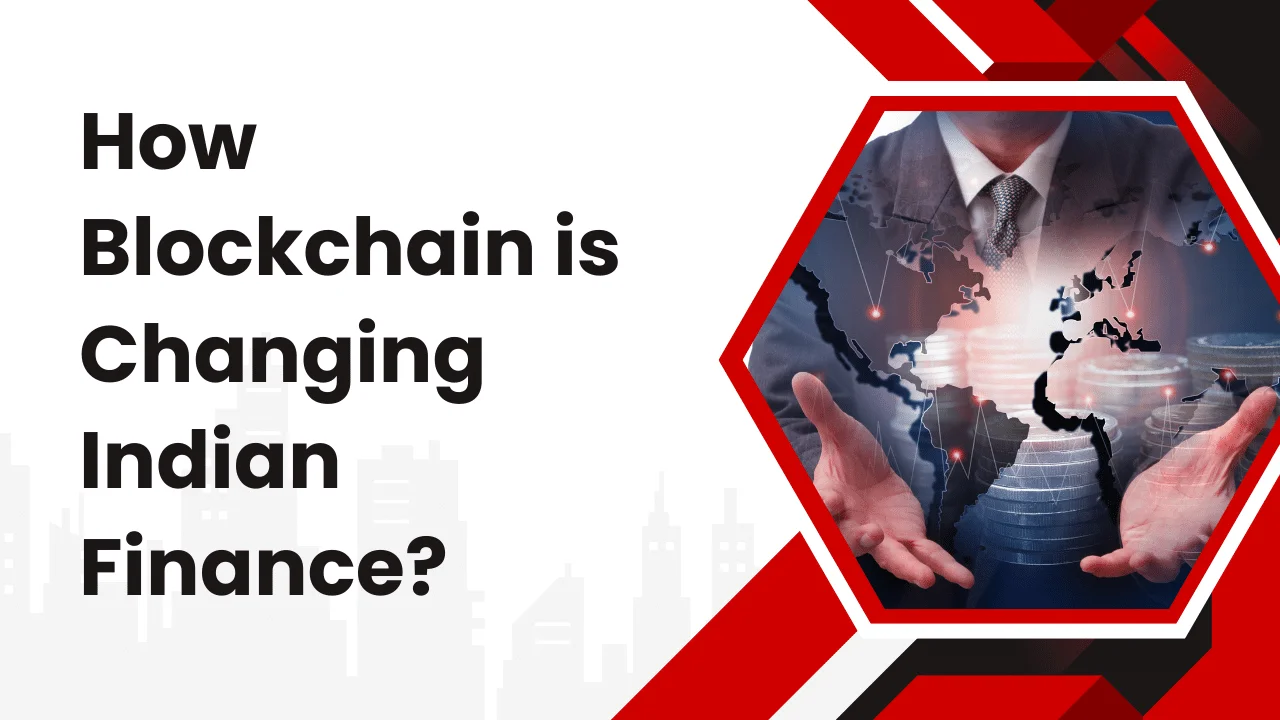Introduction
The transformative impact of blockchain technology is unmistakably evident in the Indian financial landscape. How Blockchain is Changing Indian Finance has become a pivotal question as the sector undergoes a monumental shift towards enhanced efficiency, transparency, and reliability. Revolutionizing transaction handling, data organization, and trust-building mechanisms, blockchain isn’t merely a trend but a formidable catalyst for transformation. India’s financial sector, known for its adaptability and resilience, is spearheading blockchain adoption, leveraging its potential to forge a safer, more transparent, and streamlined financial ecosystem.
Blockchain’s Function in India’s Financial Sector

The impact of blockchain technology on India’s financial industry is far-reaching and complex. With its decentralized ledger system, it eliminates the need for a trusted third party to maintain accurate and trustworthy records. Given the size and diversity of India’s financial ecosystem—which includes both urban and rural regions—this feature stands out. By implementing blockchain technology, India is stepping into a future where monetary transactions are more rapid, safer, and less vulnerable to fraud.
Public Administration with IndiaChain
Streamlining Record-Keeping
NITI Aayog’s 2017 announcement of IndiaChain, a massive initiative, sought to use blockchain technology to transform government. Data management in many fields, including healthcare and education, stands to benefit from IndiaChain’s efforts to standardize record-keeping processes. There will be less opportunity for fraud and more trust in public records thanks to this effort, which aims to make data easily verifiable and accessible.
Transparency in Government Subsidies
The use of blockchain technology to oversee public assistance programs is revolutionary. Without corruption or leakage, blockchain technology guarantees that subsidies reach their intended beneficiaries by increasing transparency. By playing a part in this space, IndiaChain is making great strides towards a more efficient and equitable distribution of government subsidies.
Improving Tax Monitoring
Another crucial area where blockchain technology can make a big difference is in the systematic monitoring of taxes. Blockchain technology has the potential to make tax collection and monitoring more systematic and transparent, which in turn can help decrease tax evasion and make the tax system more equitable and efficient. This encourages taxpayers to follow the rules, which increases government revenue.
Data in Healthcare and Education
With its efficient and secure data management systems, blockchain technology is going to change the game when it comes to healthcare and education data management. This reduces the likelihood of data breaches and illegal access while simultaneously protecting the privacy and security of individual and organizational records. Using blockchain technology in these areas can simplify administrative procedures and cut verification costs in half.
Financial Innovation and Inclusion

Fostering Decentralized Finance (DeFi) Growth
Decentralized finance’s (DeFi) meteoric ascent in India is proof of blockchain’s game-changing capabilities. Borrowing, lending, and trading are just a few of the many financial services offered by DeFi platforms, which cut out the middlemen. This promotes financial inclusion by leveling the playing field in terms of access to financial services, especially for marginalized communities.
Smart Contracts Development
Smart contracts are agreements whose terms are written into code and can execute themselves. Smart contracts have the potential to automate and simplify a number of procedures in India’s financial sector, including the approval of loans and insurance claims, with the goal of lowering the threshold for human intervention and the likelihood of disputes.
Empowering Artists and Creators

Artist Royalties
When it comes to the efficient and transparent management of artist royalties, blockchain technology presents a revolutionary solution. Without the need for middlemen, artists can receive their dues directly and instantly through the automation of royalty payments through smart contracts. This promotes a more robust and long-term environment for digital content production by guaranteeing creators receive fair compensation and opening up new avenues of income.
Content Distribution
Problems like piracy and an absence of IP control plague the conventional model of content distribution. By introducing a decentralized system for content distribution, blockchain gives creators and artists more agency over their work. To make sure they get their fair share, creators can use blockchain to safely distribute their work, monitor how it’s being used, and enforce digital rights.
Improvements in Supply Chain Openness
Streamlining Supply Chain Management
Supply chain management is just one more area where blockchain technology could be useful, joining the ranks of administration and finance. Supply chain inefficiencies can be drastically reduced with the help of blockchain technology, which provides an immutable and transparent record of transactions. This improves the speed and reliability of supply chains in various industries by better tracking goods, verifying their authenticity, and reducing counterfeiting.
Quality Assurance
The pharmaceutical and agricultural sectors are two examples of those that place a premium on quality assurance. Companies can now monitor the history and condition of their products all the way through the supply chain thanks to blockchain technology. Increased consumer trust and regulation compliance are outcomes of this degree of openness regarding product compliance.
Combining Blockchain Technology with Online Identity Verification

Securing Digital Identities
Identity protection has become critical in the modern digital era. By providing an immutable ledger for the safekeeping and verification of personal information, blockchain technology offers a solid answer to the problem of digital identity verification. This has the potential to radically alter the way in which online identities are validated, making authentication across services easier and less vulnerable to fraud and theft.
Facilitating E-Governance
With its immutable ledger and efficient transaction processing, blockchain technology has enormous promise for use in electronic governance, particularly in the realms of voting and property registration. Government can become more open and participatory with the use of this technology, which can simplify operations, cut down on paperwork, and make information more accessible.
Blockchain in Education
Streamlining Credential Verification
Particularly in the area of credential verification, blockchain technology has the potential to significantly improve the educational sector. Securely storing academic credentials on blockchain makes it faster and easier for institutions and employers to verify qualifications without the risk of fraud or tampering. Both the hiring process and the legitimacy of academic credentials are improved by this.
Promoting Lifelong Learning
Also, by creating an exhaustive and unchangeable record of a person’s learning accomplishments across all learning environments (traditional classrooms, online classes, etc.), blockchain technology can bolster the idea of lifelong learning. With this decentralized system in place, students can direct their own professional development and advance in their chosen careers.
Also Read: Blockchain for Indian Supply Chain
Ending Words
Blockchain technology is poised to be an integral part of India’s ongoing innovation and adaptation, helping to shape a digital society that is more inclusive, transparent, and efficient. How Blockchain is Changing Indian Finance? There are both advantages and disadvantages to blockchain technology, which could revolutionize Indian and global finance. To fully realize blockchain’s promise, we must solve problems like scalability, regulatory uncertainty, and the digital divide. The future appears bright, though, thanks to continuing initiatives and the increasing acknowledgement of blockchain’s advantages.

Brandy Stewart, an enchanting wordsmith and seasoned blogger, weaves compelling narratives that transport readers to uncharted territories. Infused with perceptive viewpoints and dynamic storytelling, Doris exhibits a command of language that enthralls both hearts and minds, leaving a lasting mark on the literary panorama.

